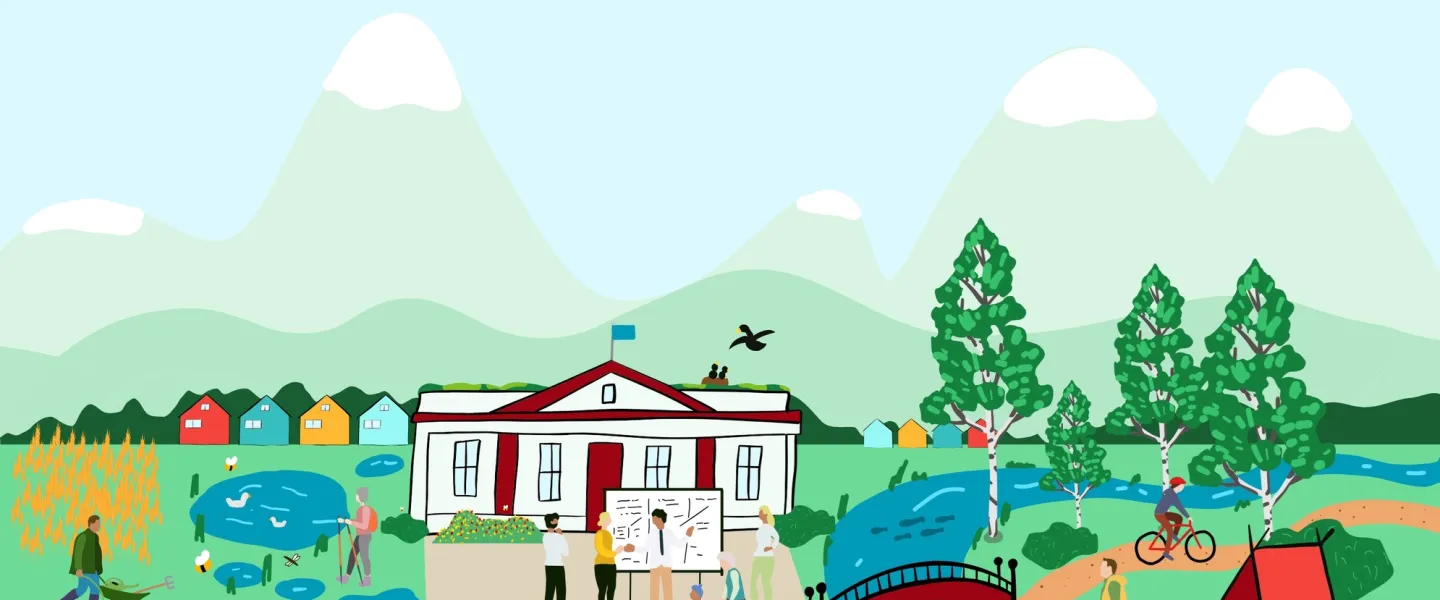
For the last 18 months, the University of Iceland’s Sustainability Institute has been working on the Nordic Policy Handbook for Nature-based Solutions with Nordic collaborators. The work is now completed, and the handbook has been published on the website www.nbspolicy.org. A PDF version is pending.
Nature-based solutions (NBS) is an internationally recognised approach to solving big societal challenges, such as reducing the impact of climate change and building resilience to its effects. Such solutions, furthermore, reduce environmental decline and loss of biodiversity. It is also possible to use nature-based solutions to tackle other societal challenges, such as disaster and risk preparedness, health and well-being, and even social justice.
Despite repeated efforts to apply them and show their positive impact, nature-based solutions are still underutilised. There is thus much to gain in encouraging and increasing their use. The handbook was developed with this in mind and contains recommendations to support the integrating nature-based solutions through policy-making.
Consultation with experts from state and municipal administration, professionals, researchers, and representatives of NGOs, along with insights from previous projects, shows that the most common obstacles to the integration of nature-based solutions include few financing options; inadequate cross-sector collaboration, varying levels of knowledge about the impacts of nature-based solutions; lack of strategic vision, and administrative practices that are poorly suited to the use of nature-based solutions. On the other hand, there is considerable growth in the use of nature-based solutions, and current policies offer significant opportunities. The handbook compiles examples of this to help the Nordic countries learn from each other.
The handbook is primarily intended for decision-makers in public administration, but it can also benefit the private sector, institutions, and organisations working with nature-based solutions. The recommendations presented in the handbook cover various governance tools and address diverse societal challenges. Although the recommendations are general and cover the field broadly, the handbook provides specific examples of how policies supporting nature-based solutions can be adapted to local conditions and societal challenges. The recommendations in the handbook address key aspects of policy development for nature-based solutions in the following areas:
- Education, knowledge building, and awareness raising
- Financing and economic incentives for nature-based solutions
- Stakeholder participation and collaboration for nature-based solutions
- Evidence-based and adaptive management
- Integration of nature-based solutions into policy-making and interdisciplinary approaches
The handbook was developed by the UI Sustainability Institute, NIVA, NORION, Ensucon AB and VTT and is funded by the Nordic Council of Ministers.
Alongside the policy handbook, the Nordic Council of Ministers also published a practical guide for planning and implementing nature-based solutions, which can be found at nbsguide.org.